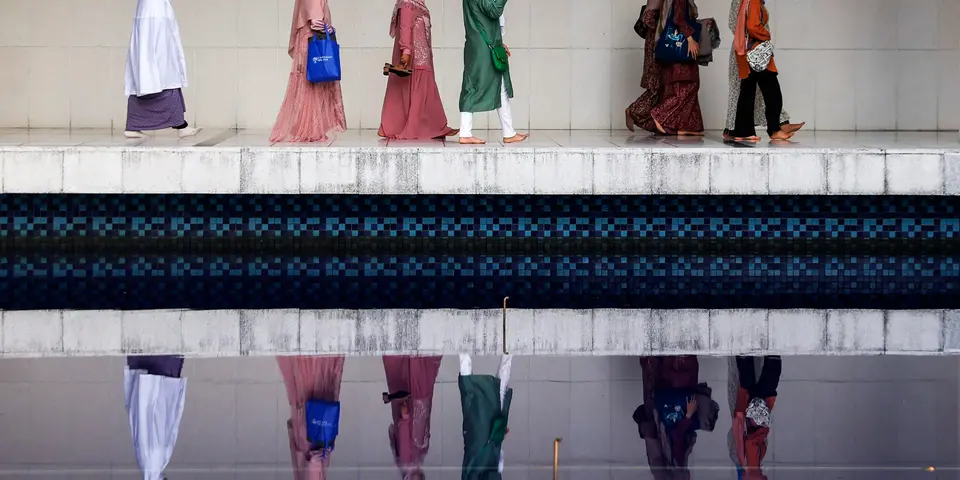
Sisters in Islam Case a Turning Point for Civil Liberties, Declares Southeast Asian Policymakers
June 24, 2025

JAKARTA, 24 June 2025—The ASEAN Parliamentarians for Human Rights (APHR) welcomes the Federal Court of Malaysia’s landmark ruling to annul the 2014 fatwa (non-binding legal opinion or interpretation of Islamic law) issued against women’s rights organization Sisters in Islam (SIS) by the Selangor Fatwa Committee. This decision represents a crucial affirmation of the constitution as the highest legal authority and the right to freedom of expression and association in Malaysia.
The Federal Court’s decision on 19 June 2025 marks a turning point in the protection of civil society against arbitrary religious decrees. It sends an unequivocal message: organizations like SIS must be free to operate, express dissenting views, and participate in public discourse—essential pillars of any functioning democracy—without the threat of punitive theological labelling.
The case has its origins in July 2014, when the Selangor Fatwa Committee, with the endorsement of the state government, issued a fatwa branding SIS and other proponents of liberalism and religious pluralism as deviant. The decree extended beyond religious opinion, instructing authorities to ban related publications, block online platforms, and demand public repentance from individuals—thus weaponizing religious interpretation to marginalize and silence critical voices.
SIS filed for judicial review in October 2014, challenging the constitutionality of the fatwa. The organization argued that it violated constitutional guarantees of free expression, equality, and legal protection, particularly as it targeted a legally registered company. A pivotal development occurred in 2022 when the Federal Court invalidated Section 66A of the Selangor Islamic Law Enactment, reaffirming the jurisdiction of civil courts in constitutional matters.
“Religious edicts cannot be used to silence legitimate advocacy,” expressed Mercy Chriesty Barends, APHR Chairperson and Member of the House of Representatives of Indonesia. “This decision is a critical step forward in ensuring that civil society and women’s rights defenders can participate fully and fearlessly in public life,” she added.
The Federal Court’s decision sends an important message: religious authorities are not above constitutional scrutiny, particularly when their actions encroach on fundamental freedoms or are used to suppress dissent. It reaffirms that the rights to freedom of expression, association, and access to judicial redress must be upheld for all, especially those advocating at the intersection of gender, religion, and human rights.
APHR commends the unwavering persistence of SIS in defending their right to exist, speak, and dissent—a struggle not only for organizational autonomy but for democratic principles in a context where religion is frequently instrumentalized to justify state repression. The ruling sets a significant precedent for civil society organizations across Malaysia and the wider region: religious authority must not be used as a tool to silence critical voices without due legal process and constitutional accountability.
As Malaysia—and the ASEAN region more broadly—grapples with the dual threats of authoritarianism and the politicization of religion, this decision serves as a judicial affirmation that constitutional rights must prevail over doctrinal control. It is a powerful reminder that the rule of law, when faithfully applied, remains a vital bulwark against the erosion of civil liberties and democratic norms.
“We call on the Malaysian government to repeal the remaining provisions of the fatwa,” urged Arlene Brosas, APHR Board Member and Member of the House of Representatives of the Philippines. “These provisions continue to legitimise discrimination, stigma, and a chilling effect on those who speak out for Muslim women’s rights and broader gender justice.”
In light of this ruling, APHR urges Malaysian federal and state authorities to move swiftly to revoke all remaining aspects of the fatwa that target individuals and undermine the rights to free expression and belief. This is essential not only to protect the space for civil society, but also to ensure that Malaysia upholds its constitutional commitments and international human rights obligations.
APHR stands in solidarity with SIS and all those across the region who continue to defend the fundamental rights that underpin just and inclusive societies.
ASEAN Parliamentarians for Human Rights (APHR) was founded in June 2013 with the objective of promoting democracy and human rights across Southeast Asia. Our founding members include many of the region's most progressive Members of Parliament (MPs), with a proven track record of human rights advocacy work.